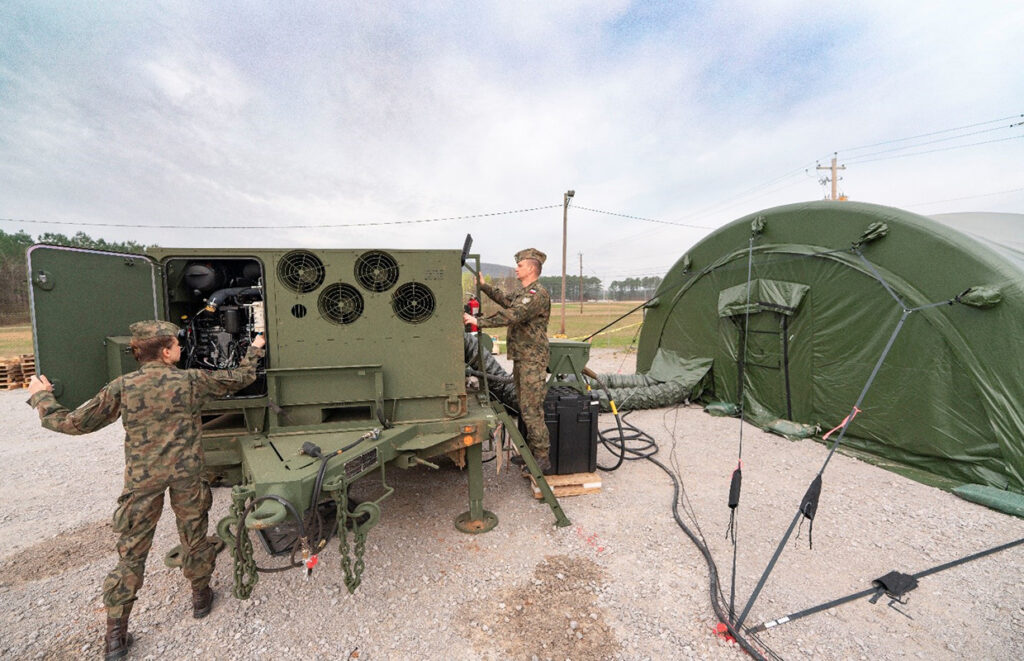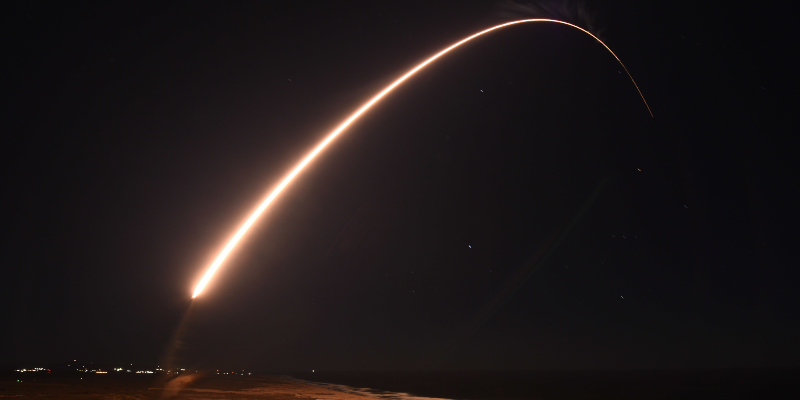Northrop Grumman Corporation was named as the prime contractor under a $13.3 billion contract awarded Tuesday by the United States Air Force.
The contract is for the engineering and manufacturing development phase of the Ground Based Strategic Deterrent (GBSD) program, which would eventually replace the existing Minuteman III intercontinental ballistic missile (ICBM) system.
The Minuteman III, built by Boeing and managed by the company out of Huntsville, represents the land-based prong of the United States’ nuclear triad.
The system first went on ready alert in August 1970 and continues to serve America well. This is exemplified by two tests in the past few weeks alone that resulted in the Air Force declaring that the Minuteman III is “safe, secure, reliable and effective to deter twenty-first century threats.”
Boeing continues modernizing parts of the existing ICBM fleet, including by adding the ability to remotely update launch codes at all 450 missile silos. The circuit cards for this important upgrade are manufactured in North Alabama at Boeing’s Huntsville Electronic Center of Excellence.
In a release, Northrop Grumman advised that work on the GBSD program will primarily occur at two locations in Utah, including one recently built to serve as the hub of the company’s GBSD work. However, the company added that work will also be conducted on the program in two Alabama cities: Montgomery and Huntsville.
According to the company, “The Northrop Grumman GBSD team includes Aerojet Rocketdyne, Bechtel, Clark Construction, Collins Aerospace, General Dynamics, HDT Global, Honeywell, Kratos Defense and Security Solutions, L3 Harris, Lockheed Martin, Textron Systems, as well as hundreds of small and medium-sized companies from across the defense, engineering and construction industries.”
Tuesday’s award came as no surprise, because Northrop Grumman was the only bidder for the prime contract.
This came after Boeing and Northrop Grumman in 2017 became the final two competitors for the GBSD program. Both companies entered into contracts to develop preliminary designs for the program, with Boeing conducting a portion of this work in Huntsville.
However, in July 2019, Boeing made the decision to drop out of the program, citing its belief that Northrop Grumman’s acquisition of solid-fueled rocket motor manufacturer Orbital ATK, now known as Northrop Grumman Innovation Systems, gave the competitor an unfair advantage. This came after the final request for proposal was issued for the final competition stage.
Boeing subsequently proposed working jointly with Northrop Grumman on the program, which would utilize Boeing’s unprecedented experience in the field. That offer was rejected by Northrop Grumman.
Northrop Grumman submitted its bid in December of last year, and the Air Force awarded a contract based on that sole bid on Tuesday.
“Our nation is facing a rapidly evolving threat environment and protecting our citizens with a modern strategic deterrent capability has never been more critical,” stated Kathy Warden, the chairman, chief executive officer and president of Northrop Grumman. “With more than 65 years of technical leadership on every ICBM system, our nationwide team is honored and committed to continuing our partnership with the U.S. Air Force to deliver a safe, secure and effective system that will contribute to global stability for years to come.”
The GBSD program is expected to cost approximately $85 billion over its lifespan.
Sean Ross is the editor of Yellowhammer News. You can follow him on Twitter @sean_yhn













